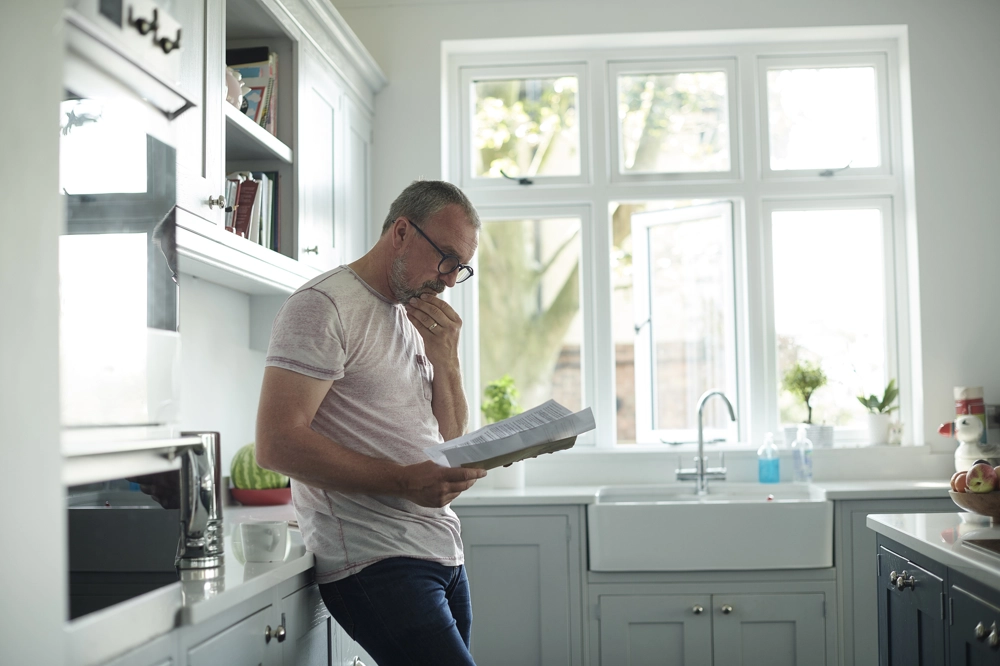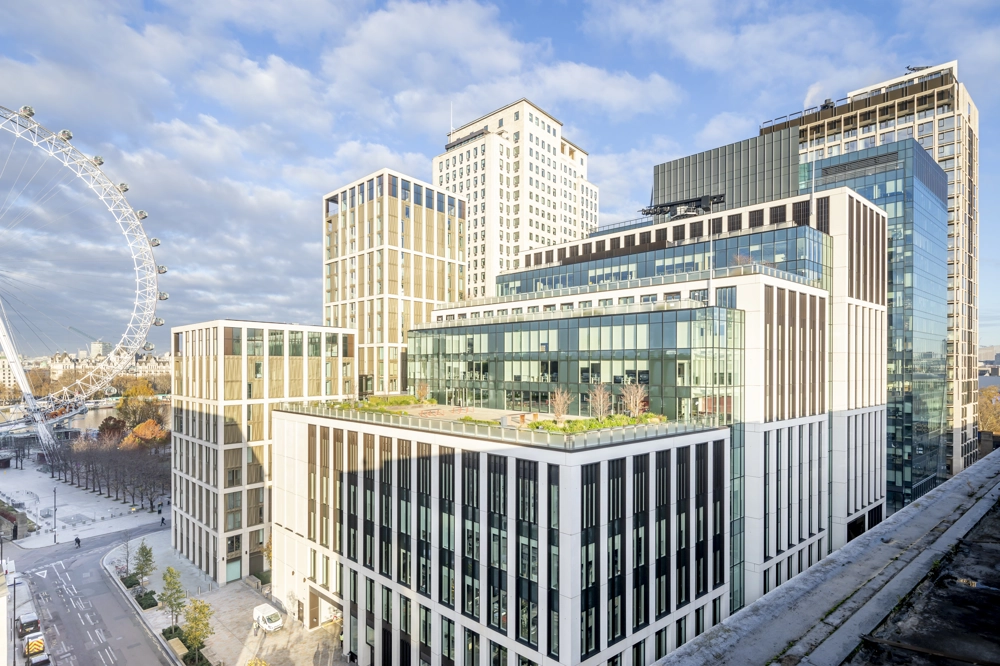All media enquires relating to L&G Group.
Over one-in-ten UK households have nothing left to cut back on in the face of further energy price rises, Legal & General finds
According to Legal & General’s Rebuilding Britain Index, announced today, the UK’s cost of living crisis will lead to nearly 70% of the UK making additional cutbacks on household spending. The report finds that the cost of living crisis is increasing the inequalities between different parts of the country and putting the levelling up agenda at risk.
1 Aug 2022
Full press releaseFull report

With long-term solutions emerging as the most attractive solution to tackle the cost of living crisis, Legal & General Chief Executive Sir Nigel Wilson calls on the new government to address the root of regional inequalities and says the private sector could play a crucial role by investing in new homes, high wage employment, through skills training and green energy initiatives.
- 13% of respondents feel they would have nothing left to cut back on in the face of future energy price increases and a further 69% are being forced to make additional cutbacks on their household budgeting
- Lower income households are more severely affected, with over one in four (28%) with household income of less than £20,000 unable to cope with further energy price rises
- Almost half of UK households (49%) are concerned about being able to keep up with rent or mortgage payments over the next 12 months.
- 64% of households with dependent children concerned about being able to keep up with rent or mortgage payments
- There was a consensus amongst respondents that long-term solutions, such as investment in energy efficient homes and offices (62%) and the creation of higher wage employment (54%) are the most attractive solutions to tackling the cost of living crisis, in addition to immediate financial support.
- Comparing the latest RBI data against the prior year shows that whilst London, the South-East and South-West have improved their Jobs & Economic Prosperity score, other areas including West Midlands and Yorkshire have fallen back.
- Only around half of people in Yorkshire, Scotland, Wales and the East Midlands are confident of maintaining their lifestyle over the coming year, compared to nearly 72% in London
The Legal & General RBI was established to measure the UK’s progress in levelling up on a quarterly basis, surveying 20,000 people and tracking social and economic progress across 52 measures, including Health and Social Care, Education, Housing, Jobs & Economic Prosperity, Environment, Energy, Transport and Digital.
Long-term solutions
When surveyed on solutions to the cost of living crisis respondents welcomed further immediate term financial support for those most in need (44%). However, there was a consensus that long-term solutions, such as investment in energy efficient homes and offices (62%) and the creation of higher wage employment (54%) are the most attractive solutions to tackling the cost of living crisis.
Geographical differences
Only 56% of UK households are confident that they will be able to maintain their current lifestyle in 12 months. Given that the RBI continues to flatline (at an overall RBI score of 65/100), the findings make clear that the UK is neither rebuilding nor levelling-up and the cost of living crisis is disproportionately affecting households in areas where there is a greater need for levelling-up initiatives.
|
AREA OF THE UK |
% CONFIDENT |
|
UK Total |
56 |
|
London |
72 |
|
East of England |
62 |
|
West Midlands |
58 |
|
North-East of England |
57 |
|
North-West of England |
55 |
|
South-East of England |
53 |
|
East Midlands |
53 |
|
Scotland |
52 |
|
Wales |
51 |
|
Yorkshire & Humber |
49 |
|
South-West of England |
49 |
|
Northern Ireland |
49 |
Fig 1: % of households confident in being able to maintain their current lifestyle over the coming 12-months
The latest quarterly report also demonstrates the impact that the cost of living crisis is having at a household level. Only 19% of households state that they will be able to cope with further energy price increases without having to cut back. Most concerningly, 13% of households feel they have nothing left to cut back on – this rises to 28% of households with an average household income of £20,000 per year or less.
The increasingly precarious nature of household budgets is further evidenced by nearly half of households (49%) feeling very or fairly concerned about being able to keep up with mortgage or rent payments over the coming 12 months. Families are feeling particularly squeezed, nearly two thirds (64%) concerned about their ability to cover housing costs.
Private sector collaboration
The findings have sparked calls from Legal & General for the new government to deepen both its commitment to and urgency in addressing the root causes of local inequalities, that the cost of living crisis threatens to widen further, by investing in the creation of homes, jobs and green energy sources. This view is one shared by UK households, with investment in energy efficient homes and offices (62%) and the creation of higher wage employment (54%) being the preferred long-term solutions.
Legal & General also calls for greater collaboration with the private sector to address the root causes of regional inequalities.
Nigel Wilson, Chief Executive at Legal & General: Many households across the UK are currently facing very tough financial choices. For some, those choices seem impossible.However, what is most concerning is that the impact of the cost-of-living crisis is being felt more severely in some parts of the UK than in others. This threatens to widen the existing demographic and geographic inequalities that the levelling-up agenda was designed to address.
There are clearly many households in need of immediate financial support, and we should absolutely welcome the financial packages that have been put in place to lessen the immediate impact for those most in need.
Whilst immediate financial support for households is important, longer-term strategic action to tackle the root cause of inequalities needs to remain a key focus Private capital has a crucial role to play in the UK’s levelling-up journey, and more need to be done to attract this investment, including in energy efficient homes, high wage employment and green energy solutions.
Legal & General have already invested over £30bn in towns and cities across the UK as part of our approach to inclusive capitalism. Truly addressing the root causes of the inequalities felt around the UK will require greater collaboration between public and private sectors. This means empowering local and regional communities to make decisions that can have a positive impact where change is most needed to ensure better equity between our communities and resilience within them. It is essential that the new government makes this central to its policy work and core focus of its delivery.
Further information




